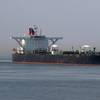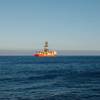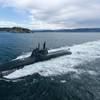Uncontrollable external forces driving commercial development is the hallmark of any industry. However, the last three years serve as a prime example of how such forces can significantly affect the maritime realm. When the reality of an Asian financial collapse hit in late 1997 and the price per barrel of oil eventually dove to $10, the thought of a $30+ barrel by 2000 seemed ludicrous. But, just as world political and market forces help to drag markets down, they inevitably turn and help to push them up again.
Today’s reality is a low to mid-$30 per barrel of oil, as tensions in the Middle East, OPEC and low product stocks continue to buoy the barrel. With concerns of an energy crisis in the U.S. Northeast this winter, Texas Republican lawmaker Joe Barton, chairman of the House Commerce Energy Subcommittee, called for a 90-day suspension of the Jones Act. His legislation — which according to official and unofficial reaction is not likely to pass — would let President Clinton choose two domestic ports in the United States for foreign-flagged tankers to transport crude oil and products.
In the offshore sector, the business of exploring for and producing oil — and all of the resultant marine business it supports — has been slower than anticipated, particularly with such elevated and sustained prices. But with E&P budgets widely expected to increase 20 to 25 percent in 2001, the wait could be over.
Big oil corporate consolidation and some good old “hindsight is 20/20” reasoning has helped to temper the usually zealous pace for new oil exploration and production inherently associated with such a price. In short, companies are more judiciously spending today's dollars and planning tomorrow’s budgets in order to flatten the often violent market swings.
Several factors, however, make this particular oil “boom” perhaps more sustainable than those past. First, most offshore and related companies 2001 projections are based on a barrel pricing more in the range of $22 to $28, which is the preferred target of OPEC. While company’s record third quarter results continue to roll in at press time, it is evident that the industry leaders are taking a more long-term, stable approach than years past.
More significantly, however, the looming and soon to be booming deepwater oil industry, which according to a recent report by Schroder Salomon Smith Barney will be facing a shortage of equipment in a few years. The report, in part, reads “Deepwater construction capacity will be insufficient to handle anticipated demand requirements in 2002 and particularly 2003-04 ... We believe a rush of field development plans will be sanctioned in 2001, followed by major contract awards to marine contractors.”
Sponsored Content
Chris-Marine’s solutions help to prolong engine lifetime

March 2024
 Read the Magazine
Read the Magazine

 Read the Magazine
Read the Magazine
This issue sponsored by:

New Orleans is Sinking, and it is Not Tragically Hip
Subscribe for
Maritime Reporter E-News
Maritime Reporter E-News is the maritime industry's largest circulation and most authoritative ENews Service, delivered to your Email five times per week










